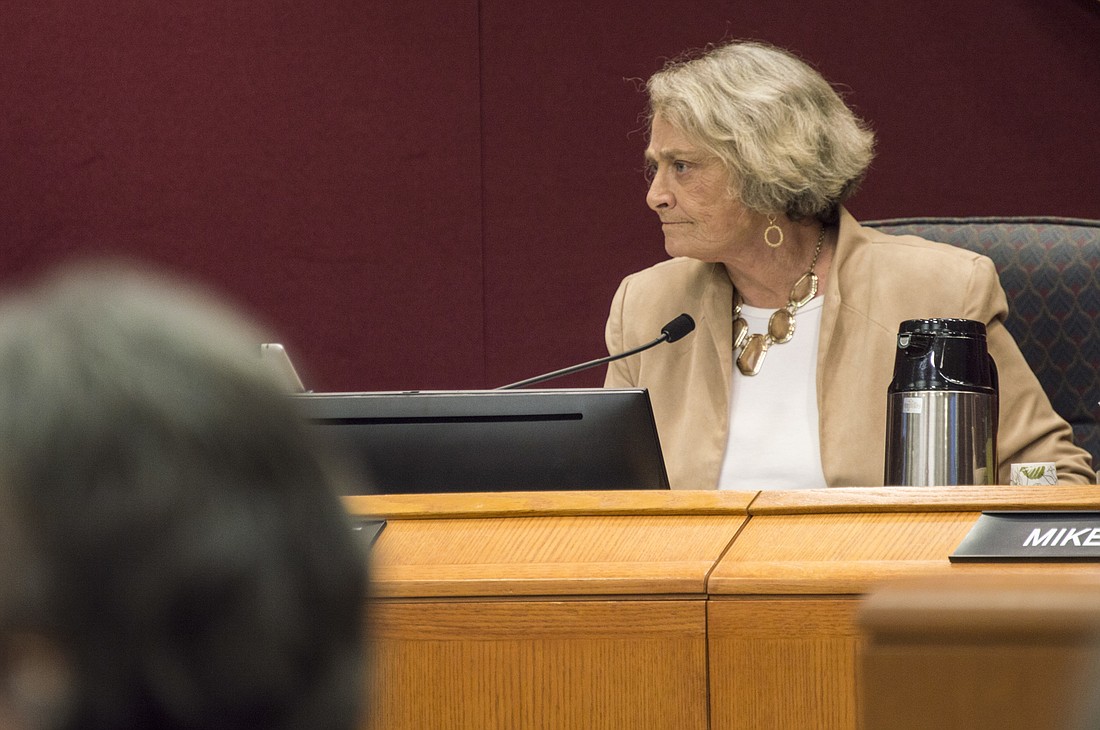- May 1, 2025
-
-
Loading

Loading

County commissioners advanced a plan that strips away requirements that developers include affordable housing in proposals east of Interstate 75.
Despite residents’ concerns, commissioners voted 4-0 — with Commissioner Nancy Detert absent — to approve changes to county affordable housing policies following a state law that went into effect in 2019.
The change comes after state lawmakers approved House Bill 7013, which mandated county governments that require affordable housing units to provide incentives that offset the cost to develop the affordable units.
In previous discussions, County Planner Steve Kirk said the county offers developers greater density in exchange for affordable housing units, but not many large-scale developers use the project. Siesta Promenade is the largest project to take the county’s offer in recent years, Kirk said.
County Attorney Joshua Moye explained that the issue revolves around the value of the incentives the county was providing.
Moye said the Florida law would allow the county to keep its current policies if it fully offset the costs for the affordable units. However, without a firm value attached to the incentives, the county faced potential litigation if they were found to have not fully offset the cost of the affordable units.
Therefore, Moye said it was best that the county amend its policies to match the state’s.
“If the current system doesn’t provide enough incentive to offset [the cost], the county would be responsible for that difference, and that could be a significant amount,” Moye said.
Although the new Florida law allows the county to seek affordable housing, the new changes to the county’s Comprehensive Plan and the Unified Development Code make it clear that the county’s system is voluntary.
Currently, if a developer plans to build in the village designation, a minimum of 15% of the dwelling units within a development have to be affordable.
The amendment to the UDC, which governs new communities east of I-75, includes:
None of the 2050 villages already approved by the county will be affected by the changes.
Commissioners said the incentive-based system would offer more benefits to developers and therefore bring more affordable housing projects to the county.
Commissioner Mike Moran said he interpreted the state’s intent was to allow governments to incentivize affordable housing while still protecting developers.
“If a community wants to do affordable housing, fine, have at it, but don’t be pushing that on the private sector,” Moran said of the policy’s intent.
When commissioners first discussed the amendments in September 2020, Commissioner Nancy Detert was the only board member to vote against them.
Detert at the time said the county offers incentives, and builders follow the county’s plan based on whether they need the incentives, which she said doesn’t do enough to encourage affordable housing in the county.
“Then we pretend we did something about affordable housing,” Detert said. “My goal is to have family housing, working family housing, not welfare housing, all over the place.”
Several residents and members of the Florida Housing Coalition were against the changes, stating the county’s current policies are more than sufficient.
In a Jan. 5 email to commissioners, leaders of the Florida Housing Coalition asked commissioners not to implement the changes. The memo states the county has created 2,889 units as a result of its current zoning regulations and that the regulations fully offset the cost of the affordable housing units.
Minjee Kim, an assistant professor of urban planning at Florida State University, said she frequently teaches courses on land-use law, and the county already is doing what it should to meet the state’s standards.
“The most powerful tool that local governments can use to meet the new standard is exactly what you’ve been doing,” Kim said.